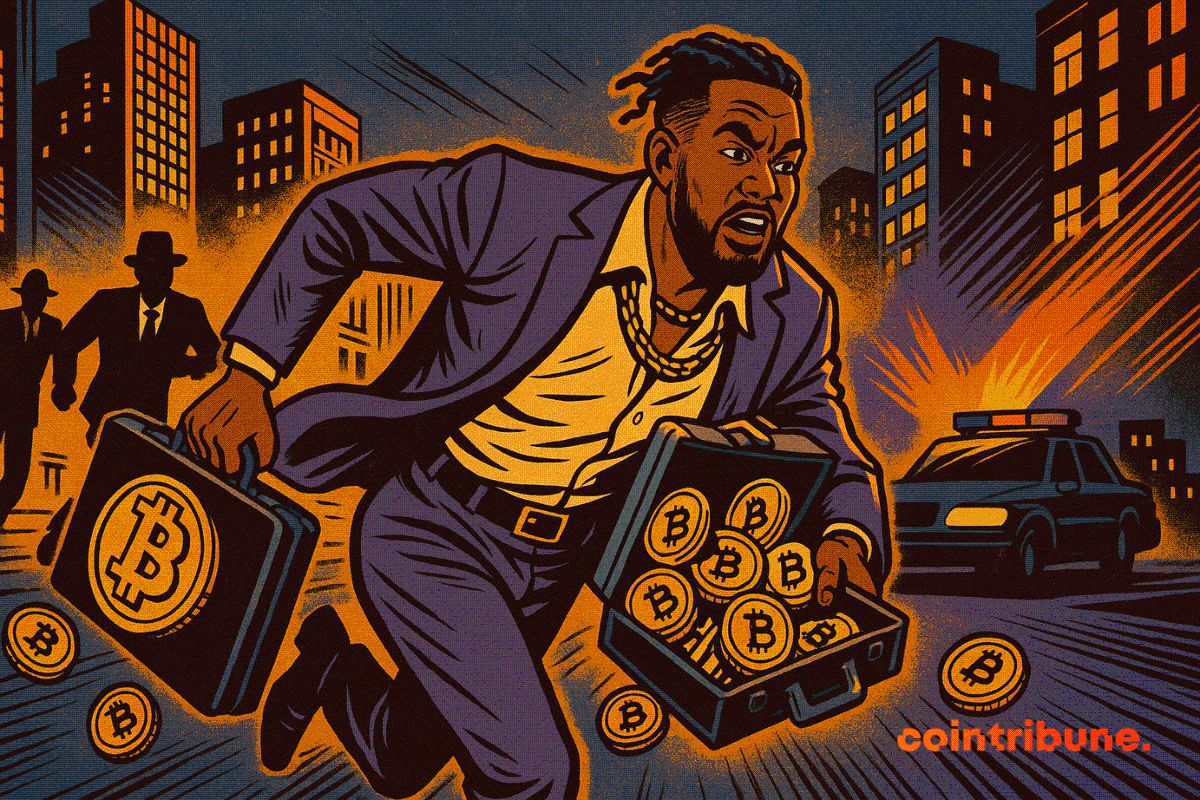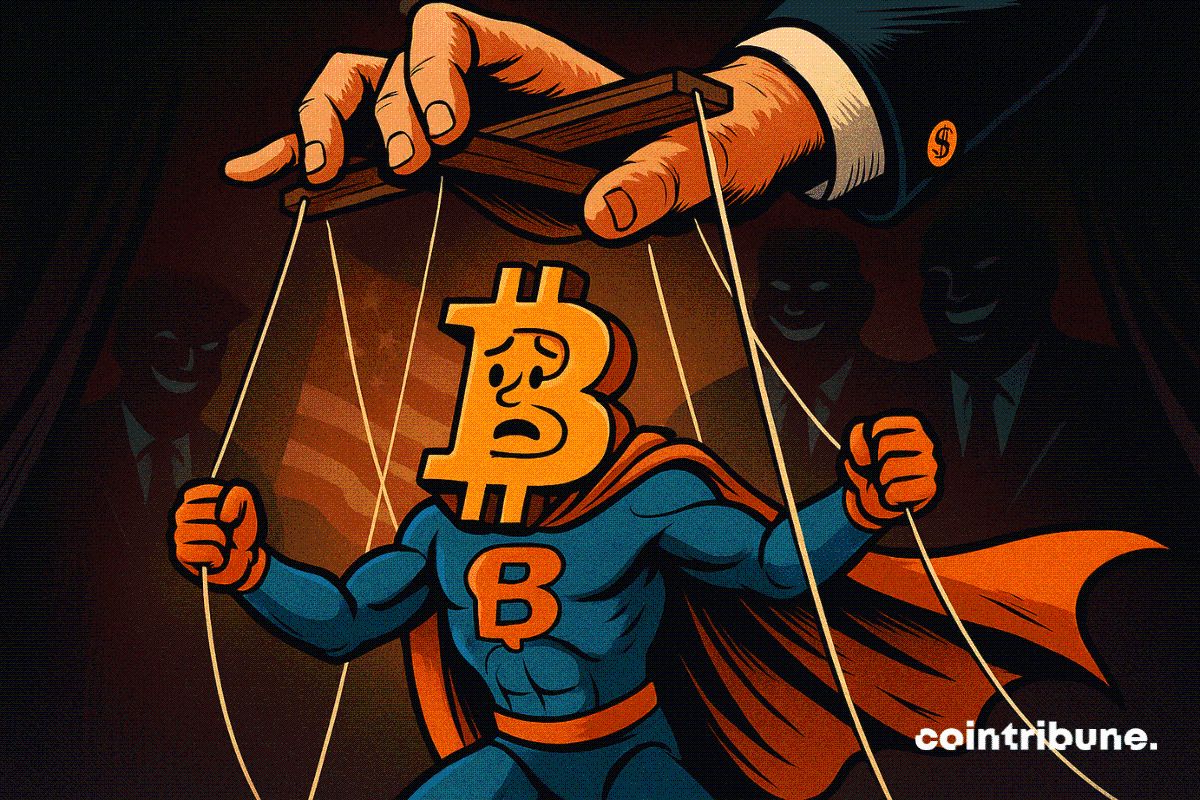Tornado Cash Legal Defense and the Future of Decentralized Innovation: Navigating Regulatory Uncertainty and Market Resilience
- Tornado Cash case highlights legal challenges of applying traditional finance laws to decentralized blockchain protocols. - Roman Storm's conviction for unlicensed money transmission and Treasury's sanctions reversal reveal fragmented regulatory approaches. - Market response shows privacy tools' resilience, with TORN token surging 75% after sanctions lifted in March 2025. - DeFi adoption grows (312M users, $247B TVL) as privacy-focused protocols integrate compliance tools like AI-driven AML analytics. -
The Tornado Cash saga has become a pivotal case study in the ongoing clash between decentralized innovation and regulatory frameworks. Roman Storm’s conviction for operating an unlicensed money transmission service, coupled with the U.S. Department of the Treasury’s reversal of sanctions on the protocol, underscores the fragmented and evolving legal landscape for privacy-centric blockchain tools. While the jury deadlocked on more severe charges—conspiracy to commit money laundering and sanctions violations—the case has forced regulators, developers, and investors to grapple with fundamental questions: Can open-source code be held criminally liable? How do traditional financial regulations apply to decentralized systems? And what does this mean for the future of privacy-focused innovation?
Regulatory Risks: A Murky Legal Framework
The U.S. Department of Justice’s (DOJ) prosecution of Tornado Cash highlights the challenges of applying 20th-century financial laws to 21st-century decentralized technologies. Storm’s conviction under the Unlicensed Money Transmission statute—a law designed for centralized entities—has raised concerns about overreach. Critics argue that holding developers accountable for third-party misuse of open-source code could stifle innovation, particularly in the DeFi space, where protocols are inherently decentralized and lack centralized control [1].
The appellate court’s 2024 ruling in Van Loon v. Department of the Treasury further complicated the legal terrain. By declaring that Tornado Cash’s smart contracts could not be classified as “property” under the International Emergency Economic Powers Act (IEEPA), the court exposed the limitations of existing sanctions frameworks in addressing self-executing code [2]. This decision, which led to the lifting of OFAC sanctions in March 2025, signaled a shift in regulatory strategy but left critical ambiguities unresolved.
The DOJ’s recent recalibration—announcing it would no longer pursue unlicensed money transmission charges for genuinely decentralized applications—offers a glimmer of clarity. However, the absence of a unified legal framework means developers and investors must navigate a patchwork of enforcement priorities, with risks varying by jurisdiction [3].
Market Opportunities: Privacy as a Legitimate Use Case
Despite regulatory headwinds, the Tornado Cash case has catalyzed a renaissance in privacy-centric protocols. The lifting of OFAC sanctions in March 2025 triggered a 75% surge in TORN token value within days, reflecting renewed investor confidence in the protocol’s utility [4]. This resilience underscores a growing market consensus: privacy is not inherently criminal but a legitimate demand for users seeking to protect financial data from surveillance, evade censorship, or engage in anonymous charitable giving [5].
Ecosystem adoption metrics reinforce this trend. As of Q2 2025, the DeFi market reached $247 billion in total value locked (TVL), with 312 million active users and a 45% year-over-year increase in mobile DeFi wallet adoption [6]. Privacy-focused tools, including zero-knowledge proofs (ZKPs) and hybrid compliance models, are gaining traction. For instance, platforms like RCO Finance are integrating AI-driven AML analytics into decentralized protocols, enabling compliance without sacrificing privacy [7].
Investor sentiment has also shifted toward projects that balance privacy with regulatory adaptability. Privacy coins like Zcash and Monero have seen renewed interest, with over 12 million verifiable credentials issued via ZKP-based identity platforms in Q2 2025 [8]. Meanwhile, funding trends reveal a 49% CAGR for DeFi projects embedding compliance tools, signaling a maturing ecosystem where innovation and regulation can coexist [9].
The Path Forward: Innovation Amidst Uncertainty
The Tornado Cash verdict and subsequent regulatory shifts highlight a critical inflection point for privacy-centric blockchain protocols. While legal risks persist, the market’s response demonstrates that privacy tools can thrive when designed with compliance in mind. Developers are increasingly adopting “privacy by default” architectures, ensuring anonymity is a baseline feature while enabling optional transparency for regulated use cases [10].
However, the path forward requires careful navigation. Investors must weigh the potential of privacy-focused protocols against jurisdictional risks, particularly in regions with aggressive anti-money laundering (AML) regimes. At the same time, policymakers face the challenge of updating legal frameworks to address decentralized systems without stifling innovation.
The Tornado Cash case is a microcosm of this broader tension. As Storm’s appeal proceeds and global regulators deliberate, one thing is clear: the future of decentralized innovation will be defined by the ability to reconcile privacy with accountability. For investors, the key lies in supporting protocols that strike this balance—those that can prove their utility while adapting to the evolving regulatory landscape.
Source:
[1] The Tornado Cash Trial's Mixed Verdict: Implications for Developer Liability
[2] Tornado Cash: Where Code, Privacy, and Sanctions Collide
[3] The DOJ's Shift in Crypto Enforcement and Its Implications
[4] Tornado Cash: Where Code, Privacy, and Sanctions Collide
[5] Tornado Cash Verdict Provokes Reckoning for DeFi Privacy
[6] Decentralized Finance Market Statistics 2025: TVL, Token
[7] The DOJ's Shift in Crypto Enforcement and Its Implications
[8] Zero-Knowledge Proofs: Privacy-Preserving Computation
[9] The DOJ's Shift in Crypto Enforcement and Its Implications
[10] Tornado Cash Verdict Provokes Reckoning for DeFi Privacy
Disclaimer: The content of this article solely reflects the author's opinion and does not represent the platform in any capacity. This article is not intended to serve as a reference for making investment decisions.
You may also like
DOJ Exposes $7.8M Crypto Scam Tied To Bitcoin Rodney

Grayscale Signals Bitcoin Could Hit New Highs in 2026 Despite Recent Dip

Will the Bitcoin Cycle Survive American Monetary Policy?
